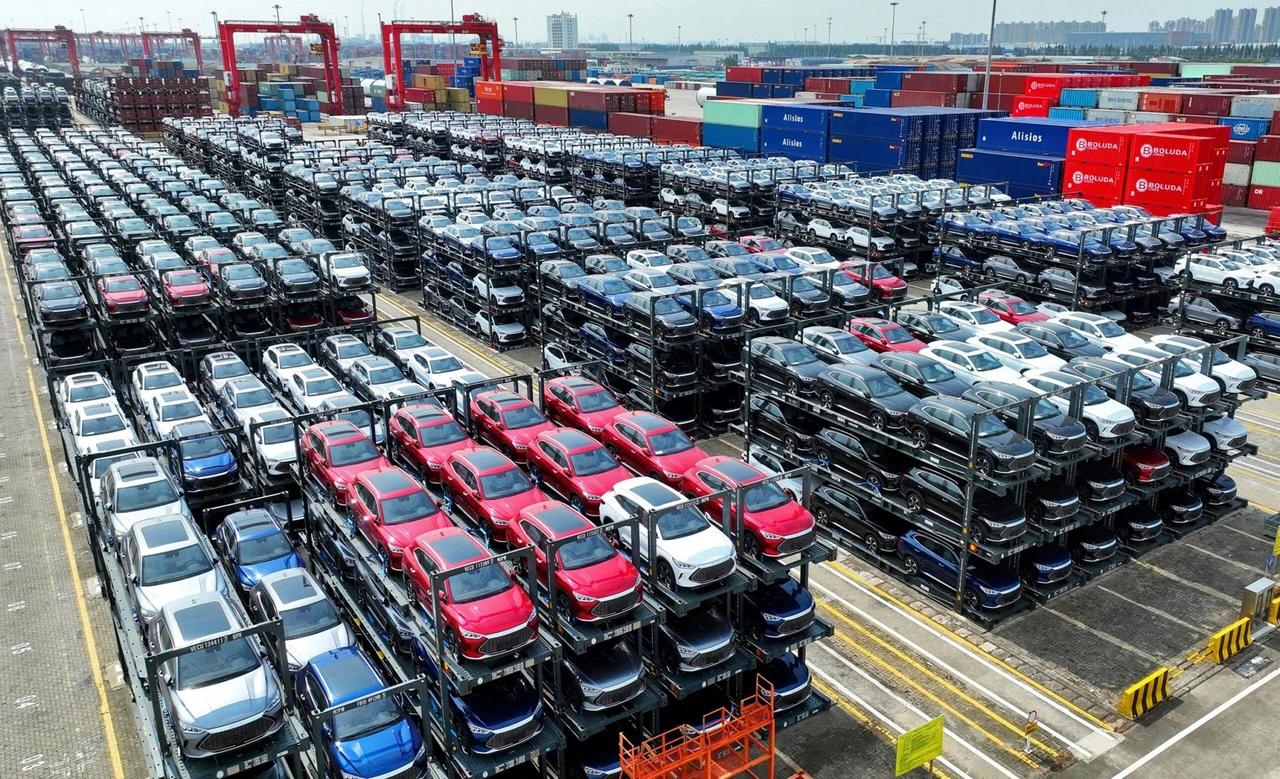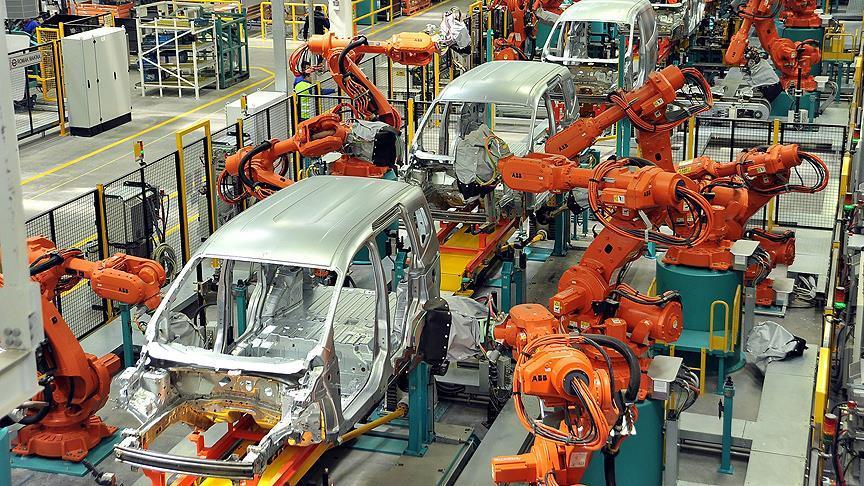BYD’s local supplier strategy stirs debate after release of Environmental Impact Report
 BYD electric cars waiting to be loaded on a ship are stacked at the international container terminal of Taicang Port at Suzhou Port, in China’s eastern Jiangsu Province, Sept.11, 2023. (AFP File Photo)
BYD electric cars waiting to be loaded on a ship are stacked at the international container terminal of Taicang Port at Suzhou Port, in China’s eastern Jiangsu Province, Sept.11, 2023. (AFP File Photo)
The Environmental Impact Assessment (EIA) report for BYD, the first major automotive investment in Türkiye in 27 years, has raised concerns about the company’s commitment to local suppliers.
The document reveals that BYD plans to manufacture many components, such as seats and brake pads, in-house, prompting questions about whether the company will collaborate with local suppliers.
elated]
Albert Saydam, President of the Automotive Industry Suppliers Association (TAYSAD), stated: “BYD officials have quietly begun visiting suppliers in Anatolia, including local manufacturers of seats, plastics, metal parts, molds and tires. Contrary to speculation, they are actively seeking ways to work with firms in Türkiye.”
Key details from EIA report
The EIA application indicates that BYD intends to establish factories for various components, including bodywork, paint shops, assembly lines, chassis, frames, motor assembly, electric vehicle battery assembly, bumpers, brake pads, seats and air conditioning systems at its investment site in the Manisa Organized Industrial Zone.
Saydam emphasized the EIA report serves as a preliminary document assessing all potential scenarios.
“There are many speculations and predictions, but let me share the facts. BYD has started supplier visits in Anatolia. They are gathering information from local suppliers and exploring collaboration opportunities,” he noted.

Plans for supplier meetings with BYD
Saydam revealed that TAYSAD is organizing a larger meeting with BYD’s top management. “As they begin their visits, we are taking steps to coordinate a broader meeting with BYD’s senior management, and they view this positively. The Chinese are unfamiliar with Türkiye, and we don’t know them either. Instead of engaging in speculation, we must showcase our strengths and highlight areas for cooperation to achieve the targeted localization rate as quickly as possible,” he explained.
Production goals and workforce impact
According to the EIA application, the planned investment aims to produce 200,000 rechargeable hybrid and electric vehicles annually at the Manisa Organized Industrial Zone. During the construction phase, an average of 2,500 workers will be employed, while the operational phase will provide a total of 12,000 jobs across three shifts.
Construction is expected to begin in 2025, following the completion of necessary permits, with production anticipated to start by the end of 2025 or in the first quarter of 2026.
Call for focus on opportunities
Addressing concerns about investment incentives and localization rates, Saydam remarked, “To those who express doubts and criticisms, I say this: one day you open a newspaper and see that neighboring countries have attracted a $1 billion investment for 150,000 vehicles on a 1.6 million square meter site. You probably wish for the same opportunity.
Right now, we have a significant chance. For the first time, we can focus on what we can achieve instead of wishing for what might have been, and we must concentrate on that agenda.”
As BYD embarks on this ambitious project in Türkiye, the automotive industry closely monitors how it balances its manufacturing plans in collaboration with local suppliers.



